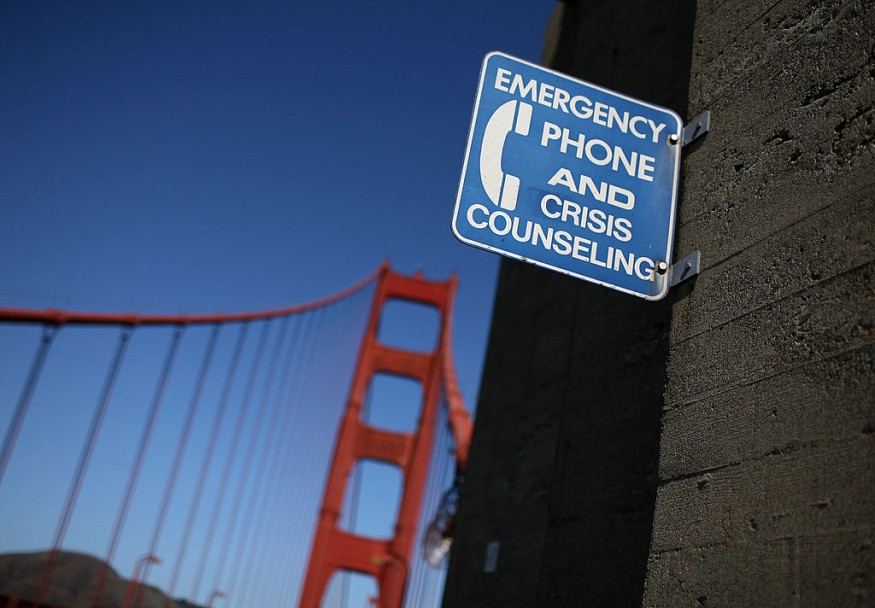Experts noted an alarming rise in suicide deaths among young and middle-aged women in Japan during the second wave of the COVID-19 pandemic, even though the rates dropped in the first wave when the government gave citizens generous handouts.

Japan's suicide prevention specialists were most concerned about vulnerable retirees when the coronavirus pandemic began last year. The group that historically accounts for the country's high suicide rate: middle-aged men suffering job loss or business failure.
However, the official data prompted a rush to understand why Japan's support systems fail amid concerns that those who need help.
DISCLAIMER: Some may find the content of this story upsetting.
Suicide in Japan: Numbers
Suicides in Japan rose in 2020 to 20,919, from 20,169 the previous year, after years of decline since the economic crises of the 1990s. But while men's suicide rate was essentially static, it rose 15 percent among women, from 6,091 to 6,976.
Michiko Ueda, a professor, specializing in suicide prevention at Waseda University, said figures from last year show a clear break from past trends.
She believes that COVID-19 pulled the trigger and caused the suicide rate to rise. However, the data surprisingly concerns that the greatest increase is among women, which is not prevalent in Japan.
Suicide in Japan: Emotional Gap
Koki Ozora, the founder of Anata no Ibasho (Your Place) that provides free text message therapy, said possibly one explanation of why its clientele skews teenagers from the 20s age bracket.
"The biggest reason is women are losing work and don't know how to support themselves and their families," he told CBS News.
Unfortunately, what remains unclear is precisely how such a disproportionate impact the pandemic has had on Japanese women.
In the early months of 2020, when Japan was under voluntary lockdown, suicide rates fell but began to rise in July and then rose suddenly in the autumn. There was little direct correlation between deaths and the rates of coronavirus infection or the timing of public health restrictions.
But the pressures appeared to return when the summer came and people adjusted to a "semi-normal life." From July onwards, the suicide rate started to climb and then unexpectedly increased in the autumn.
There was no strong association between fatalities and the rates of coronavirus infection or the timing of public health limitations.
Takanori Hirano, a sociologist at the University of Momoyama Gakuin in Osaka, told the Financial Times that there's not that much evidence, so we're in the interpretation domain. He pointed first to economic issues, as with other colleagues.
Hirano elaborated that workplaces where several women work are ones where persons interact with others. More stress in the pandemic, thus. He added that there are many migrant employees at higher risk of losing their jobs, too.
This has led some observers to challenge Japan's economic policy for Covid-19, which relies on loans and subsidies to hold firms alive and only implicitly funds their staff.
The burden of operating from home, which may contribute to changes in domestic abuse or marital problems, and the difficulty of handling infant care through school closures in the spring are other potential causes.
Suicide in Japan: Celebrity Phenomenon
This phenomenon is not unique to Japan, and it is one reason why it is so difficult to report suicide. The BBC reported that the more discussed in the media and on social media, the more significant the impact on other vulnerable people in the immediate aftermath of a celebrity suicide.
As COVID-19 leaves relatives unable to grieve for those who have succumbed to the virus, it is making life much more difficult for the families of victims of suicide.
Japan is now experiencing COVID-19's third wave. The government declared a second state of emergency. The condition is expected to spread far into February. More shops, hotels, and bars are shutting their doors. More workers are losing their employment.
Another nagging question for Professor Ueda: What happens in other countries where the pandemic is far worse if this happens in Japan?
••••••
Call the toll-free Nationwide Suicide Prevention Lifeline at 1-800-273-TALK (8255), 24 hours a day, 7 days a week, for emergency assistance if you are in a crisis in the United States. Calls are all private. Often anonymous, free and accessible 24 hours a day, 7 days a week, is the Disaster Distress Helpline at 1-800-985-5990. To interact with a qualified trauma worker, people may also text TalkWithUs to 66746.
Check out more news and information on Medicine and Health on Science Times.












